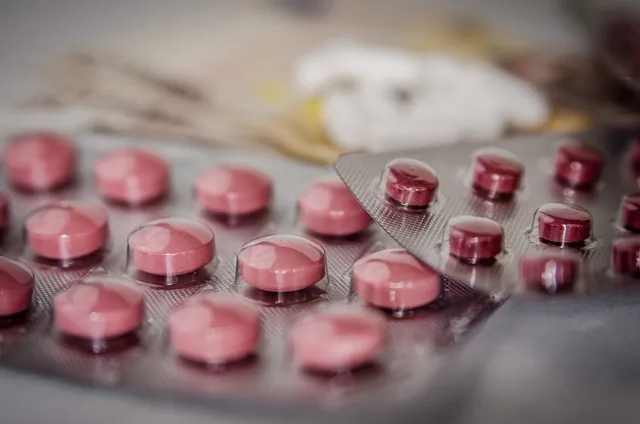Clopidogrel is an antiplatelet drug that blocks platelet aggregation. Coagulation occurs due to the adhesion of platelets.
Many people also call it a blood thinner. Clopidogrel is used for heart patients.
It is administered to prevent heart attacks, strokes, angina pain, etc.
Clopidogrel Tablet Uses
1) To Prevent Heart attack
2) To Reduce Angina Pain
3) Stroke
4) Patients with stent
5) Peripheral Arterial Disease (PAD)
Mode of Action of Clopidogrel Tablet
Clopidogrel is metabolized in our liver, where an enzyme called CYP2C19 activates it in the liver.
Clopidogrel is known to be the active metabolite of thiol.
The thiol metabolite binds to a receptor called P2Y12 that is present on the surface of platelets.
P2Y12 receptor itself signals for platelets to bind, and an enzyme called ADP plays an important role in signaling to this receptor.When clopidogrel binds to this P2Y12 receptor, ADP cannot bind to it and blood clotting does not occur.
One thing to note here is that platelets are not capable of regenerating these receptors.
Therefore, the effect of clopidogrel lasts until the new platelets replace the old platelets.
Therefore, the effect of Clopidogrel lasts 7-10 days. It takes 7-10 days for new platelets to be created.
Therefore, when you stop taking clopidogrel, the effects of clopidogrel persist for several days.
Dosage of Clopidogrel
Patients complaining of heart attack, stroke or angina were given 75 mg once daily, i.e. the OD dose.
Doses up to 300 mg are given to patients with uncontrolled angina, acute coronary syndrome, or stenting.
In most cases, the dosage for the patient depends on the experience of the doctor.
Who Should not Take Clopidogrel
1) Patients with hemophilia
2) Patients with cerebral hemorrhage
3) For patients with stomach ulcers
4) Pregnant and lactating women
5) Patients with severe kidney and liver problems
6) People who have just undergone surgery
Side Effects of Clopidogrel Tablet
1) Nose bleeding
2) Blood does not stop easily
3) Bleeding from minor scratches
4) Diarrhea
5) Abdominal pain
6) Heartburn and acidity
7) Blood in urine, vomit, or stool
8) feeling very tired
9) Sore Throat
What Medicines Should Not Be Taken With Clopidogrel
Clopidogrel can interact severely with some medicines. Do inform your doctor if you are taking such medicines like
Antithrombin alfa, Antithrombin III, Apixaban, Argatroban, Aspirin rectal, Bivalirudin, Cangrelor, Caplacizumab, Carbamazepine, Cimetidine, Clarithromycin, Dalteparin, Efavirenz, Erythromycin base, Erythromycin ethylsuccinate, Erythromycin lactobionate, Erythromycin stearate, Eslicarbaze acetate, Esomeprazole, Etravirine, Felbamate, Fluconazole, Fluoxetine, Fluvoxamine, Fondaparinux, Isoniazid, Ketoconazole, Evoketoconazole, Modafinil, Morphine, Nefazodone, Nirmatrelvir/ritonavir, Omeprazole, Oxcarbazepine, Pacritinib, Protamine, Rabeprazole, Repaglinide, Rifabutin, Rifampin, St John’s Wort, Ticlopidine, Tucatinib, Voriconazole.

.webp)



